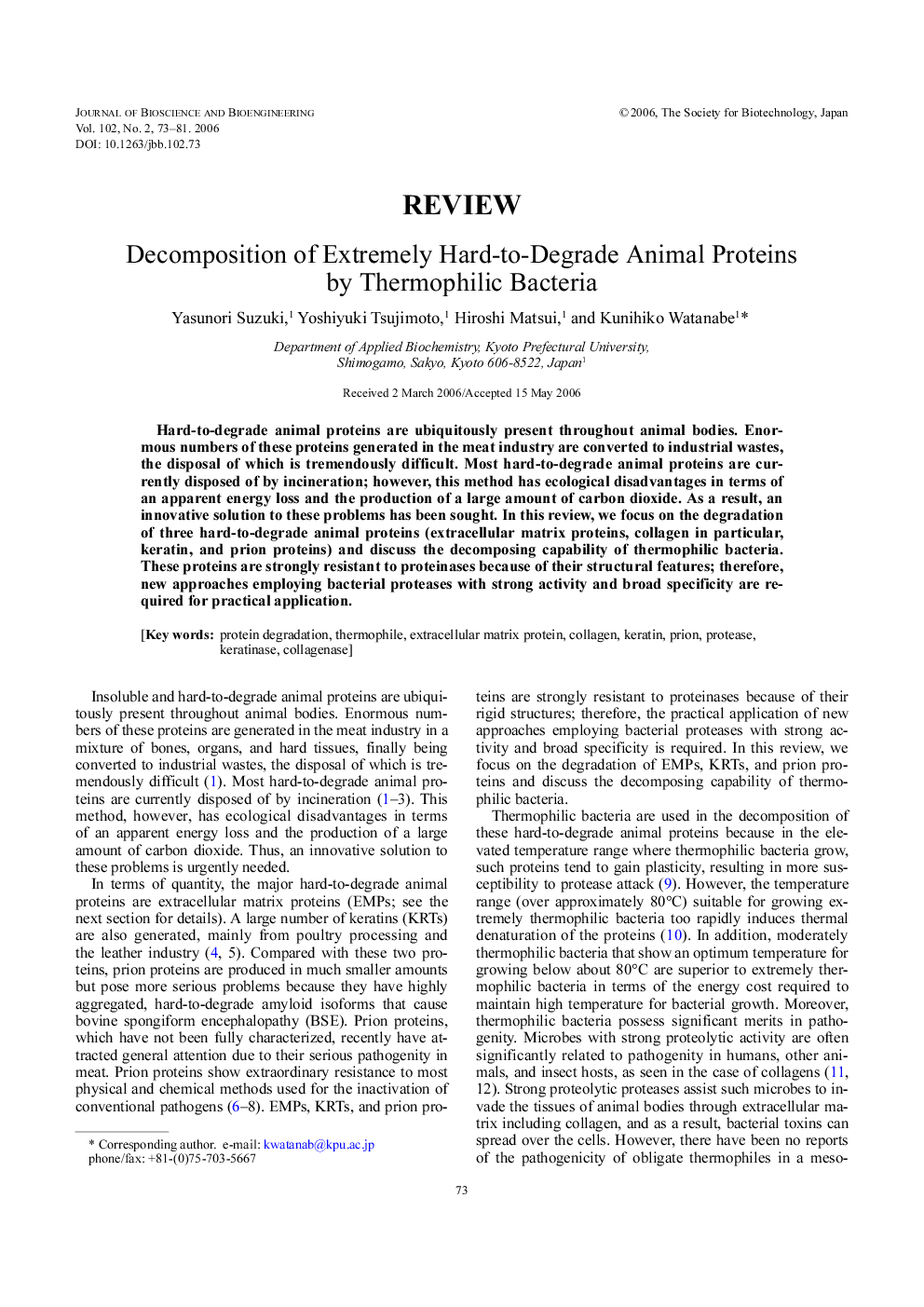| Article ID | Journal | Published Year | Pages | File Type |
|---|---|---|---|---|
| 22135 | Journal of Bioscience and Bioengineering | 2006 | 9 Pages |
Hard-to-degrade animal proteins are ubiquitously present throughout animal bodies. Enormous numbers of these proteins generated in the meat industry are converted to industrial wastes, the disposal of which is tremendously difficult. Most hard-to-degrade animal proteins are currently disposed of by incineration; however, this method has ecological disadvantages in terms of an apparent energy loss and the production of a large amount of carbon dioxide. As a result, an innovative solution to these problems has been sought. In this review, we focus on the degradation of three hard-to-degrade animal proteins (extracellular matrix proteins, collagen in particular, keratin, and prion proteins) and discuss the decomposing capability of thermophilic bacteria. These proteins are strongly resistant to proteinases because of their structural features; therefore, new approaches employing bacterial proteases with strong activity and broad specificity are required for practical application.
